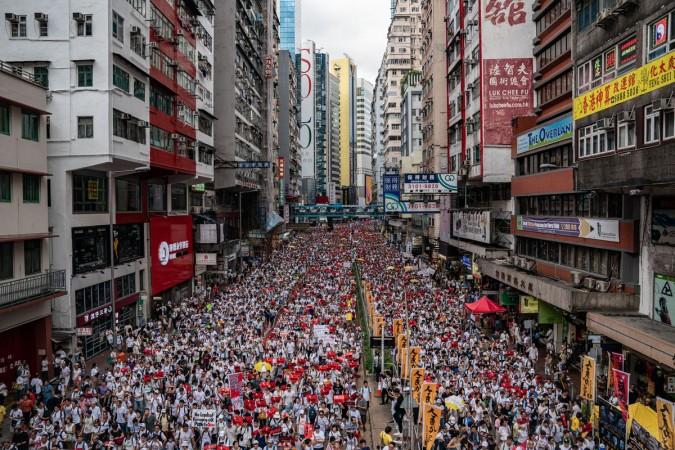
The controversial law that prompted Hong Kong into mass demonstrations of dissent has been officially suspended until further notice.
In an official press conference held in Hong Kong on Saturday, June 15, the severely criticised Chief Executive Carrie Lam announced that the pro-Beijing lawmakers had urged the government to delay the bill.
Referring to the massive protest that the bill generated from Hong Kong's citizens, Lam said that "We should pause and think instead of assuming the second reading of the bill in the Legislative Council as scheduled," reported Hong Kong Free Press.
She further said that the Government of Hong Kong is reflecting on the protests and is adopting an open mind "to heed comprehensively" the views of all sections of the society.
However, she insisted that the "loophole" in the Hong Kong criminal justice system, which according to her was the main reason behind pushing forward the contentious bill, continue to persist and clarified the fact that the government has not completely retracted the bill.
Lam cited the murder case in Taiwan, in which the alleged perpetrator, a Hong Kong man, fled to the city had prompted the two countries to re-evaluate the criminal justice system affecting both the countries.
The Taiwanese authorities have however said that it would not seek the extradition of the accused man as the proposed bill is suspected to put its citizens at risk.
Dismissing questions whether she will resign after the widespread dissent over her proposed bill, she said that "We regret that this incident caused a split in society."
Earlier, before she became the Chief Executive in 2017, Lam had said that she would resign "if mainstream opinion makes me no longer able to continue the job," CNN reported.
Last week, at least a million protesters marched against the passing of the contentious extradition law. The massive demonstration turned violent after the riot police armed with batons arrived at the government headquarters in the Admiralty business district and subjected tear gas and pepper sprays against protestors who charged and hurled the police barricades.
However, the public is still suspicious and holds its position of Beijing being the mastermind behind the law based on last month's incident in which a politburo member revealed that its targets included foreigners who had committed crimes against Chinese national security outside China.
The anxiety of Hong Kong bending before Beijing's imposition had plagued the minds of many before the recent demonstrations.
In April, pro-democracy protest organisers were jailed for taking part in the Umbrella Movement protests in 2014 in which demonstration for seeking free, transparent elections from China had been sought by the public.

















